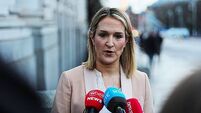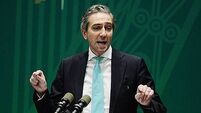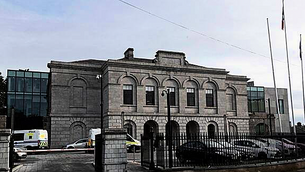Varadkar expresses regret over Northern Ireland protocol
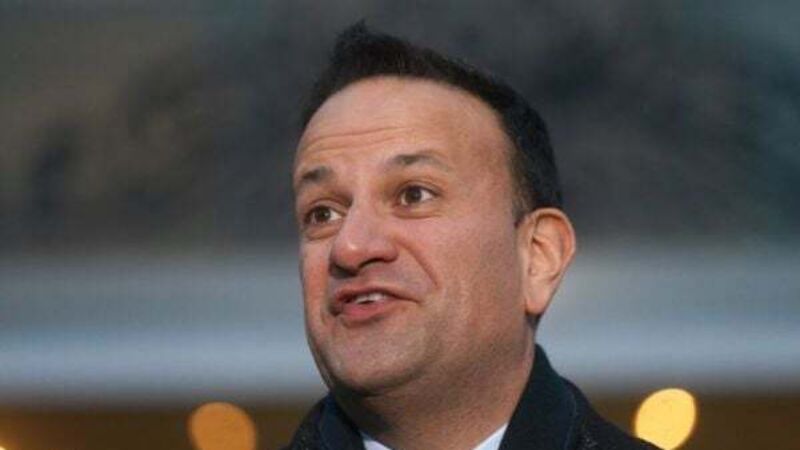
By David Young, PA
The Taoiseach has expressed regret that the Northern Ireland Protocol was imposed on the region without the support of unionists.
Leo Varadkar said the EU was willing to be “flexible” and “reasonable” in negotiations with the UK to achieve “broader support” within Northern Ireland for the post-Brexit trading arrangements.
Mr Varadkar, who became Taoiseach for a second time in December, said the prospect of London and Brussels striking a deal before the landmark anniversary of the Good Friday peace agreement in April was “very real”.
Since becoming premier again, Mr Varadkar has made a series of comments in which he has acknowledged mistakes and regrets in relation to the protocol.
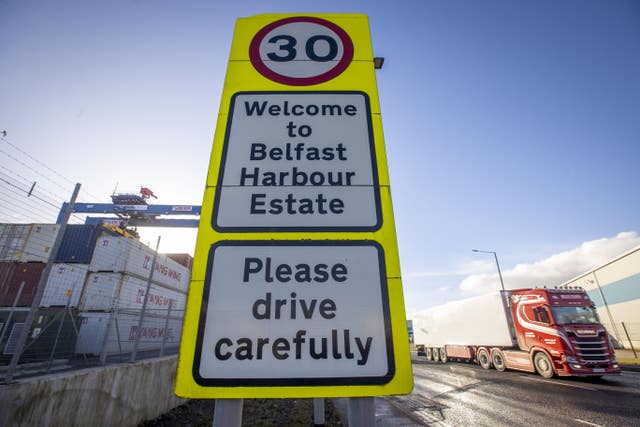
His remarks have been interpreted as a softening of the Fine Gael leader’s tone about the contentious arrangements.
The protocol was agreed by the UK and EU in 2019 as a way to unlock the logjam over securing a Brexit withdrawal agreement.
Designed as a means to keep the land border free-flowing, it moved regulatory and customs checks on goods to the Irish Sea, creating economic barriers on trade between Britain and Northern Ireland.
Many unionists in Northern Ireland are vehemently opposed to arrangements they claim have weakened the region’s place within the union.
The DUP is currently blocking the functioning of powersharing at Stormont and has made clear it will not allow devolution to return unless major changes to the protocol are delivered.
Mr Varadkar was in his first term as Taoiseach when the protocol was agreed and was an instrumental figure in its creation.
As a result, he subsequently became a deeply unpopular figure within some sections of unionism and loyalism in Northern Ireland.
Speaking to the BBC at the World Economic Forum in Davos, Switzerland, Mr Varadkar again spoke of his regrets about the protocol.
“I do have regrets and a regret that I have is that in the same way Brexit was imposed on Northern Ireland without the support of both communities, the protocol was imposed on Northern Ireland without the support of two communities,” he said.
“And that wasn’t possible at the time for various reasons, in part because the Executive was not functioning, so there was no-one to speak for Northern Ireland. But that has created difficulties.”
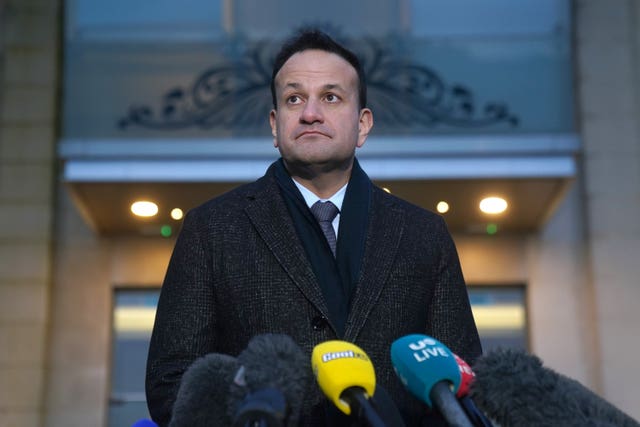
The Taoiseach said in economic terms, the protocol was broadly working.
“There’s no hard border between north and south, the Single Market’s integrity has been protected, the Northern Ireland economy is outperforming the UK economy,” he said.
“But I can understand how unionists and unionist politicians feel that the protocol has lessened the links, weakened the union between Northern Ireland and Britain and also that it exists without them having a proper say as to how it operates.
“So, I understand that, and I get that, and I said that when I met the (Northern) party leaders last week in Belfast. And that’s why, you know, I’m keen as part of the European Union that will be on one side of the negotiating table here with the UK government to be flexible, to be reasonable, to see what modifications and changes we can make that might ensure that we have broader support in Northern Ireland for the current settlement.
“It is the case that a majority of people in the Assembly support the protocol, but the way for Northern Ireland to work well you want to have cross-community support, and we don’t have that at the moment.”
The protocol is not yet fully operational, with several grace periods in place limiting the volume of checks required on trade.
Mr Varadkar suggested making some of those grace periods permanent was an option.
“I think there is some room to manoeuvre when it comes to the grace periods,” he said.
“I’m not saying that all grace periods can be made permanent, but I think we need to examine those kinds of solutions.”
The Taoiseach welcomed the recent agreement between the European Commission and the UK that gives the EU access to British data on Irish Sea trade.
“The fact that we have the data sharing agreement really helps and that makes a huge difference in terms of unlocking other solutions,” he said.
“You know the protocol fundamentally is there to make sure there’s no hard border between north and south, and there isn’t, and also to protect the integrity of the Single Market, and I’ve acknowledged that the Single Market’s integrity has been protected, notwithstanding the fact that it hasn’t been fully implemented and fully enforced, and I think that’s where there is room for flexibility.”
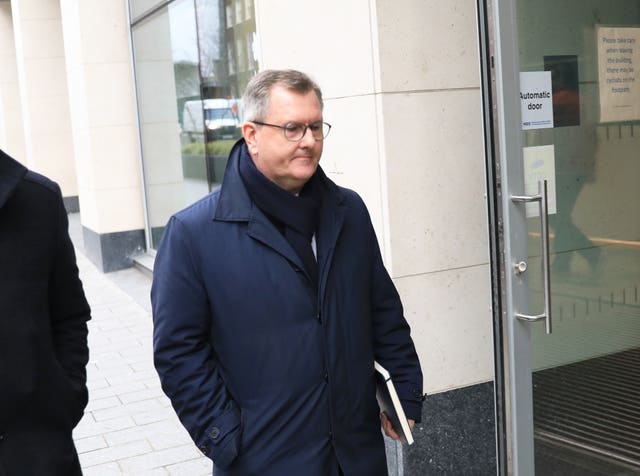
On the prospect of the EU and UK arriving at a compromise deal to cut protocol red tape, Mr Varadkar said: “I don’t want to be overly optimistic at this stage but I do think things are moving in the right direction, that the possibility of an agreement between the EU and the UK in the next couple of months is very real and, with reasonableness and flexibility on both sides, I think it can be achieved.”
Both London and Brussels are keen to secure a breakthrough that would facilitate the return to the devolved institutions ahead of the anniversary of the Good Friday Agreement.
Mr Varadkar said it would be “desirable” to deliver a deal before the anniversary, but stressed the date was not a “hard” deadline on the negotiations.
“It’s desirable that we would have the protocol agreed and institutions in Northern Ireland working again before that anniversary,” he said.
“But it’s still an anniversary worth marking. Let’s not forget what it meant – it meant the end of violence in politics in Ireland, peace in Northern Ireland, peace on our island. And that in itself is something worth marking and worth celebrating, in my view.
“But of course it’d be much better if those institutions were operating again, not just the ones in Northern Ireland but also the North/South bodies, which enable cooperation between the Republic of Ireland and Northern Ireland, and also the East/West ones that involve the United Kingdom and Ireland.”

